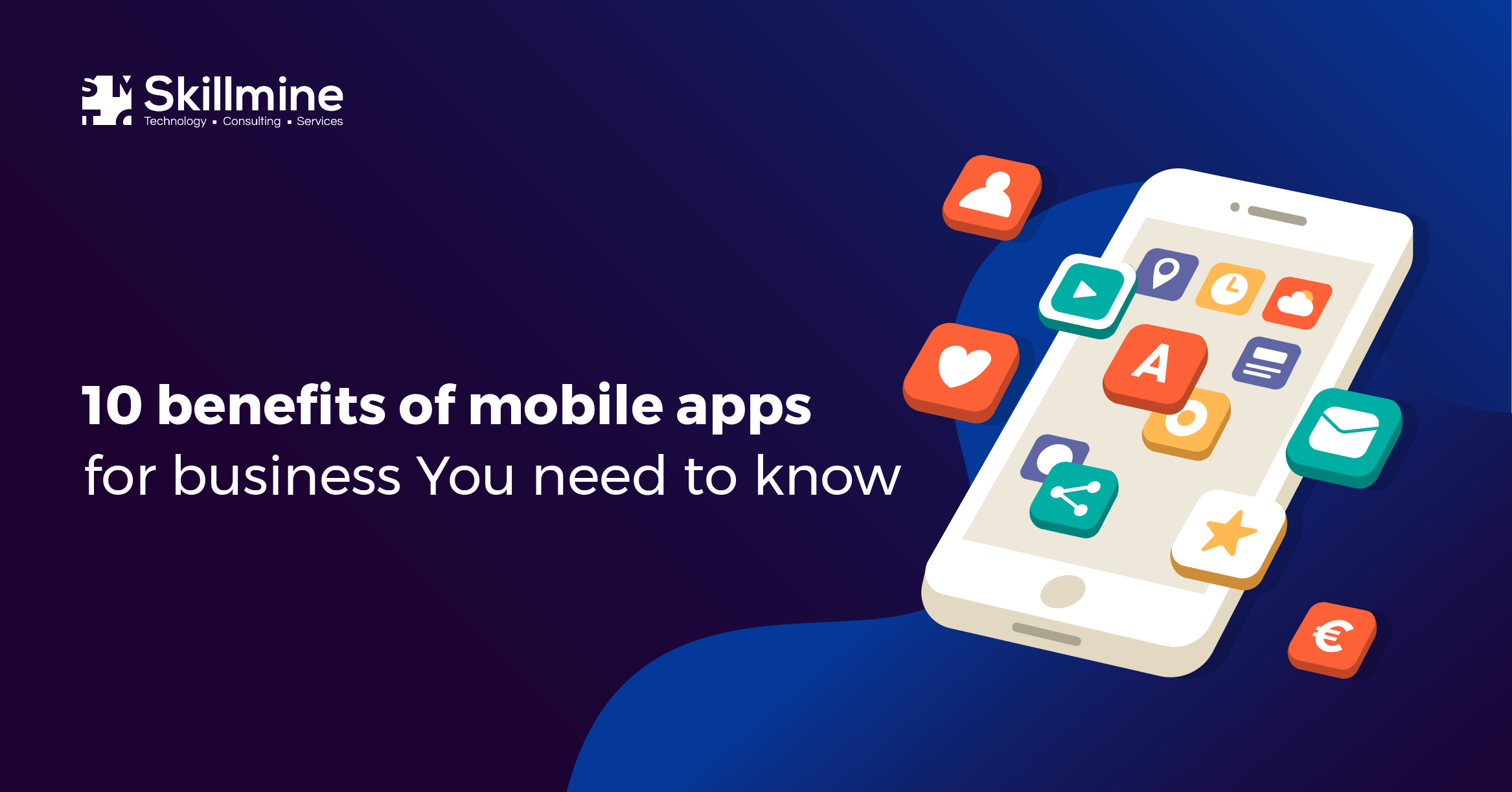Did you know that mobile apps are projected to generate over $935 billion in revenue by 2023? With an estimated 3.8 billion smartphone users worldwide, it’s no surprise that businesses are turning to mobile apps as a powerful tool to reach their customers. But it’s not just about the revenue – mobile apps offer a wide range of benefits for businesses of all sizes. In this blog, we’ll explore the top 10 benefits of mobile apps for businesses, backed by impressive stats and figures. From boosting customer loyalty to increasing efficiency, mobile apps have the potential to revolutionize the way businesses operate in the digital age. So, let’s dive in and discover why mobile apps are a must-have for any modern business. In this blog post we will outline 10 key benefits of having a mobile app for your business that you need to know!
Data Security
- 95% of cyber-attacks are due to human error, making data security education and training crucial for businesses. (Cybint)
- 60% of small businesses that suffer a cyber attack go out of business within six months. (National Cyber Security Alliance)
- 41% of companies have over 1,000 sensitive files accessible to every employee. (Varonis)
- The use of mobile devices to access corporate data has increased by 60% over the past year. (MobileIron)
- 83% of mobile apps have at least one security vulnerability. (Positive Technologies)
Heightened Scalability
Mobile apps are good for businesses, especially if they want to grow and become bigger. In 2025, there will be 7.33 billion people with mobile phones that can use apps. Half of those people will stop using an app if it takes longer than 10 seconds to load. Over half of the people won’t recommend a business if their app isn’t working well. Most people prefer using apps instead of websites on their phone.
Mobile apps are very good for businesses. By 2026, the global mobile app market will be worth over $400 billion. Mobile apps need to be designed well so they can handle a lot of people using them at once and load quickly. This helps companies attract more customers, make more money, and do better in the long run.
Improved Efficiency
Mobile apps are an invaluable asset for companies as they improve efficiency and ensure more streamlined operations. Statistics show that businesses using mobile applications can increase workforce productivity by 34% (Salesforce) and save 7.5 hours per week, adding up to 11 full workdays every year! Additionally, 88% of organizations report improved performance due to the use of such apps while 60 % see a reduction in their workload (Cisco). These numbers clearly demonstrate why investing in app-based solutions is crucial for today’s business success.
By investing in mobile app development, businesses can benefit from streamlined processes and improved efficiency. Studies show that companies reap an estimated $6,000 per employee annually due to increased productivity when utilizing apps for tasks such as automating repetitive functions or providing real-time notifications. These tools also simplify communication between teams while enhancing customer experience — delivering a competitive edge over rivals not taking full advantage of mobile applications.
Data retrieval made easy
By integrating forms and surveys into the development of a mobile app, businesses can save time while efficiently gathering important customer data. This helps to streamline processes for staff members as well as users – no more physical paperwork or items needed!
Better customer interaction
Mobile apps help businesses make customers happy. 90% of customers would rather use a mobile app than go to the website on their phone. 72% of customers feel loyal if they have an app from the company, and they are more likely to buy things from the company with an app. 67% of customers will pay more for a good mobile experience, and 84% say that using the app is better than visiting the website on their phones.
These statistics demonstrate the importance of mobile apps in driving customer satisfaction. Mobile apps allow businesses to offer a more personalized and seamless customer experience, with features such as push notifications, in-app messaging, and loyalty programs. By providing convenient access to products and services, mobile apps can improve customer engagement and retention, leading to increased revenue and brand loyalty. As such, businesses that prioritize mobile app development can gain a competitive advantage by providing a superior customer experience that meets the evolving needs of their target audience.
Seamless integration
Mobile apps offer businesses the invaluable benefit of seamless integration, allowing them to streamline processes and optimize the user experience. The significance of this capability is clearly demonstrated by recent industry findings: 67% prioritize integration when selecting an app vendor (Kinvey), 86% consider it an important factor in development projects (Kony). Additionally, integrating with CRM systems can lead up to 15% increases in productivity (Salesforce) which has been extended further as 71% report improved data management through such integrations. (Kinvey).
Businesses looking to maximize their productivity and gain an edge in the market should prioritize seamless integration when developing mobile apps. By integrating existing systems like CRM, ERP, and marketing automation with modern mobile technology businesses can streamline operations while enhancing data management for a unified user experience that drives efficiency. Strategic app development is key to achieving better outcomes across all areas of business performance.
Confidentiality of data
Mobile applications offer businesses a variety of ways to manage records related to their customers. This includes the ability to easily capture thoughts and ideas related to them on smartphones, which can then be stored securely within the app. This provides an advantage over traditional methods of recordkeeping, as it allows staff to be more accountable and serve customers better.
Smooth project management
Mobile apps can provide businesses with immense benefits when managing projects. According to the Project Management Institute, 77% of highly successful projects employ project management software – often including mobile-optimized applications. These tools can cut back on time invested by each team member up to 8 hours per week and increase collaboration between members by 30%, according to Capterra research. Moreover, 75% percent of companies stated that using a mobile app considerably improved their project processes (Cisco).
These Statistics show that having a good way to manage projects using mobile apps is important for businesses. Mobile apps can help teams talk and work together, and track how things are going. This saves time and makes it easier to get things done. Companies that use mobile apps to make project management better will finish projects faster and everyone will work better as a team.
Ease accessibility
With mobile applications, businesses can stay connected with their customers and employees more easily than ever before. Mobile applications make it easy to sync devices with your desktop, hence, you can access important work documents from anywhere. In addition, mobile applications give you the freedom to share helpful information with your clients in a way that is convenient for them.
Effortless maintenance
Developing mobile applications in-house offers businesses the control and flexibility they need to ensure their app is running at its highest potential. Your team’s intimate knowledge of your codebase can quickly identify any bugs or issues that arise, allowing them to swiftly make updates without external help. Additionally, with an in-house development process comes greater cost savings over time – ensuring your business goals are met while providing users with a quality product experience.
Final Thoughts
Skillmine has it all. Whether you’re looking for a competent team, reliable delivery timeline or cutting-edge tech solutions, Skillmine is your one-stop shop for personalized mobile apps. Their holistic IT Solutions make sure you get the best results with minimal effort. With over a decade of experience helping numerous companies with their success stories, we can confidently say that Skillmine offers top-tier expertise in the industry. So don’t wait! Reach out to us and see what this leading IT firm can do for you. Why not share your thoughts on this blog in the comment section? Let’s discuss your projects together and see how we can turn your vision into reality!
Looking for expert technology consulting services? Contact us today.





